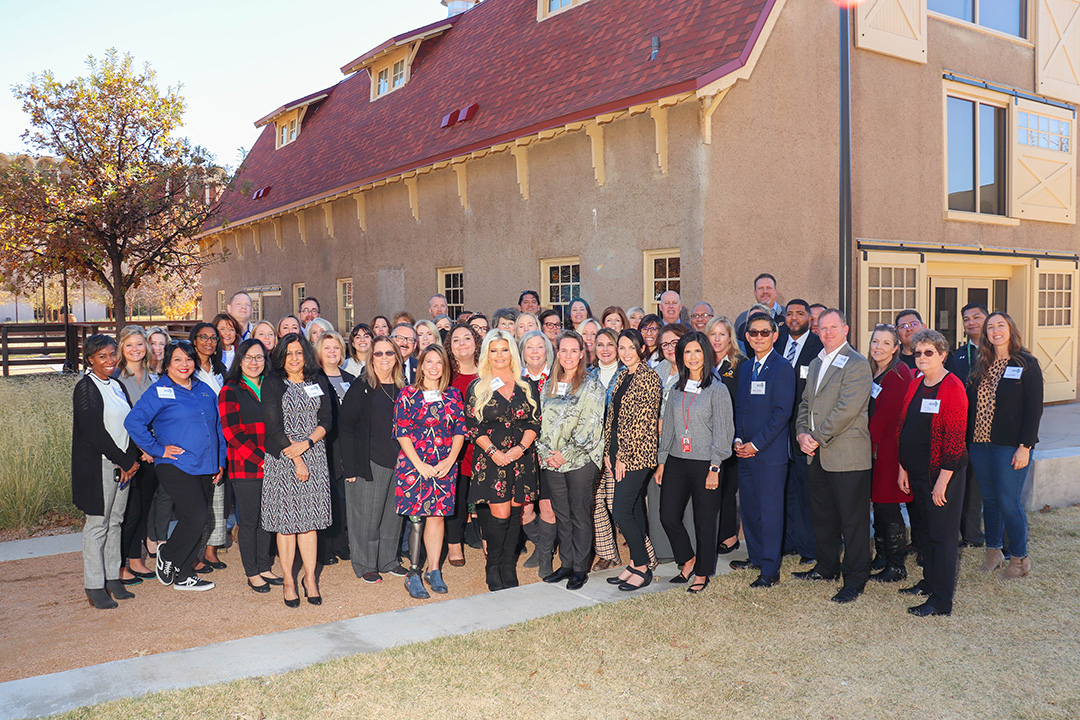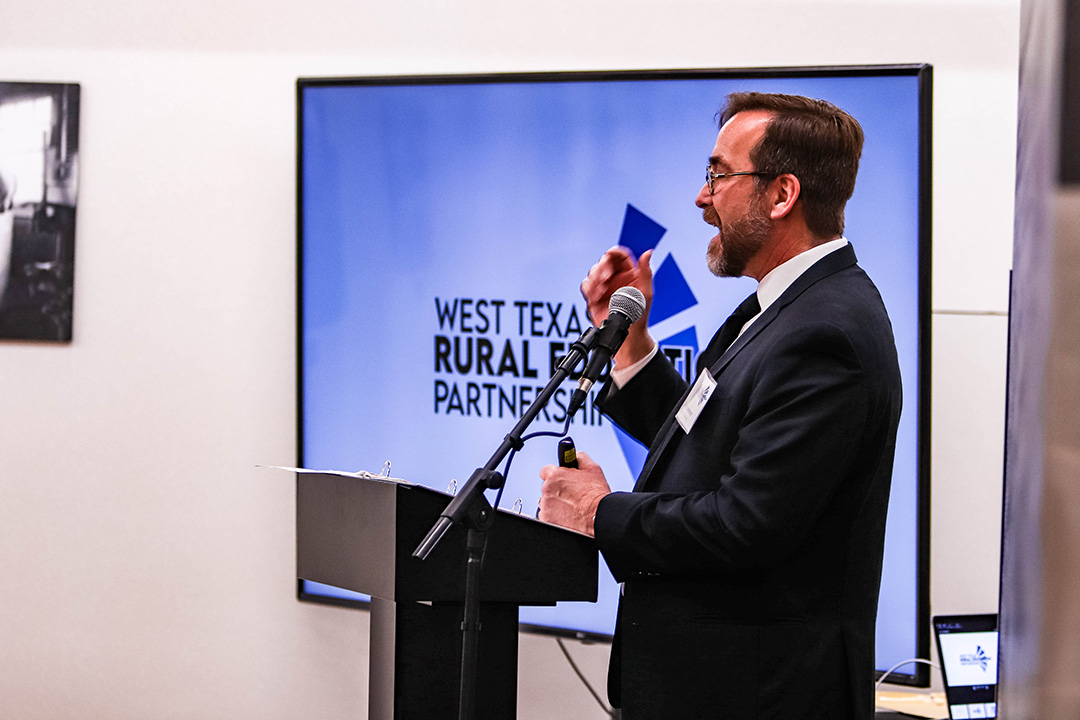
The College of Education is leading a multi-institution effort to recruit and train rural teachers in West Texas.
After a successful first year, West Texas Rural Education Partnership received a $1.5 million gift from the Prentice Farrar Brown & Alline Ford Brown Foundation to continue addressing a shortage of qualified teachers across rural West Texas.
Since its launch in April 2021, the Texas Tech University-led alliance of West Texas universities, community colleges and school districts has used collaborative, research-based strategies to recruit and prepare 48 aspiring educators who are committed to teaching in 18 different rural districts.
Over the next three years, the West Texas Rural Education Partnership – with members including Texas Tech, West Texas A&M University, University of Texas at El Paso and University of Texas Permian Basin – aims to expand until it produces at least 252 teachers each year who will enter classrooms in 84 rural districts.
“We're seeing that Texas Tech is a leader in serving the needs of rural schools, but much more is needed,” said Doug Hamman, director of West Texas Rural Education Partnership and chair of Texas Tech's Department of Teacher Education in the College of Education. “It will require the efforts of all the school districts, universities and community colleges in the partnership to finally solve the teacher shortage in rural schools. That's what the partnership is aiming to do, and everyone involved is stepping up to make this happen.”

To reach its goal, West Texas Rural Education Partnership will continue developing high-quality pathways for aspiring educators to earn education degrees and begin teaching careers in rural West Texas. One way the partnership does this is through "grow your own" programs, which seek to develop local talent by allowing residents of rural communities to stay where they live while completing a high-quality, university-based educator preparation program. School districts often work in collaboration with universities and community colleges to recruit and prepare the candidates.
Other research-backed methods employed by West Texas Rural Education Partnership include paid residencies in which school districts pay teacher candidates to train for a full year alongside a mentor teacher on a district campus. Such residencies offer stipends of $20,000 or more so students do not have to work during their residencies, and university faculty are typically based on the district campus to provide support and guidance.
Studies and experience at Texas Tech have shown residencies and “grow your own” programs to be reliable for recruiting and preparing teachers who are committed to staying long-term in rural school districts and able to immediately improve student achievement.
West Texas Rural Education Partnership also employs a rural schools liaison to assist school districts in addressing teacher talent needs. Shawn Mason, former superintendent of Crosbyton Consolidated Independent School District, serves in the role.
“I think we're leading the state in high-quality teacher preparation,” said Clifton Tanabe, dean of the College of Education at University of Texas at El Paso. “Preparation programs across Texas are trying to create effective pathways for talented educators to get into schools so kids in those schools have the best educational outcomes possible. That's what University of Texas at El Paso is trying to do, and that's what Texas Tech is trying to do. We're all in.”

The primary members of West Texas Rural Education Partnership are:
- Amarillo College
- El Paso Community College
- Howard College
- Midland College
- Odessa College
- South Plains College
- Western Texas College
- Texas Tech University
- University of Texas Permian Basin
- University of Texas at El Paso
- West Texas A&M University
Texas Tech's College of Education and Hamman launched West Texas Rural Education Partnership after witnessing a lack of cooperation among Texas institutions of higher education and school districts.
The need to work together was underscored by a 2017 report from Texas Education Agency's Texas Rural Schools Task Force, which emphasized the state's pressing teacher shortage and recommended “grow your own” pathways and closer school-university partnerships as potential solutions for rural areas. The urgency has only increased after the COVID-19 pandemic exacerbated school staffing challenges.
“At a time when education and political leaders are confronting teacher shortages, this project provides a blueprint for a long-term solution,” Hamman said. “It will require us to put community needs above all else so that university systems and community college systems collaborate to address this pressing educational issue.”
The partnership was launched in April 2021 and members gathered in December and June for convenings on Texas Tech's campus, where they discussed cooperation across post-secondary institutions, degree alignment between community colleges and universities and strategies for delivering quality teacher preparation at a distance from the university campus. Additional convenings are planned for this year.
“It was very encouraging as an educator and as a rural superintendent to see these institutions coming together in the face of adversity to come up with a plan,” said Chris Smith, superintendent of Brownfield Independent School District (ISD), which partners with Texas Tech's TechTeach educator preparation program. “There's never been a time where it's so essential for us to come together and unite and serve for a good cause. We're on the clock. What happens to rural districts during the next five to 10 years is going to dramatically impact the culture and even the lifeblood of our communities.”
The $1.5 million gift funding West Texas Rural Education Partnership is from Prentice Farrar Brown & Alline Ford Brown Foundation, a Bank of America, N.A., Trustee. The foundation previously provided a $500,000 gift to launch the partnership.
West Texas Rural Education Partnership's mission is to develop and implement an inter-institutional strategy that will provide a pathway to teaching in rural schools for community members, high school students and existing teacher candidates. Ultimately, the goal is to help staff fill vacancies, dramatically reduce rates of attrition and prepare teachers who are truly committed to their rural, West Texas communities.
